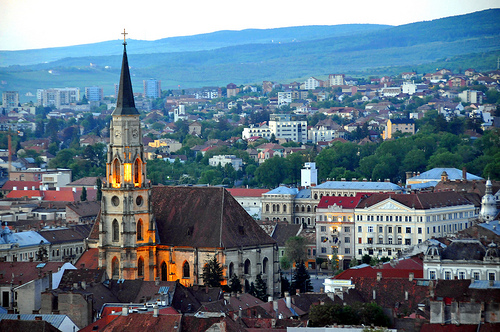Bordered by the Black Sea and located between Ukraine and Bulgaria, Romania is an important business destination in Eastern Europe. It is also a popular tourist hub, with abundant natural beauty such as the Carpathian Mountains and the beautiful beaches along the Black Sea coast. The capital city of Bucharest is especially attractive to expats for its employment opportunities and modern lifestyle. For expats who intend to live and work in Romania, here are five things you need to know.Where can you work?
Romania’s economy is steadily recovering after the international economic crisis. A growing number of international companies have started to operate in the country, resulting in more jobs being available, especially in big cities like Bucharest. Expat professionals with specialized skills will find it very easy to secure good employment in Romania. The major industries such as construction, energy and telecoms are now opening up to investment and the competitive environment has led to a greater availability of jobs. Fluency in English is a skill that is in high demand in Romania and many expats find work as English teachers in the private international schools, most of which are located in Bucharest. Teaching jobs in public schools and private language centers are also available. Having a TEFL certificate and some previous experience is helpful when applying for such jobs.
Where can you apply for jobs?
One can begin the job application process upon arrival in Romania. But there is considerable competition for jobs and it may be a better idea to begin the process in advance. Some of the popular job websites for securing employment in Romania include Ejobs, one of the biggest job portals in Romania; Bizoo, a popular Romanian job search engine; and Balkan Tech Jobs, for those looking for work in the tech industry.
The application letter
Your application letter is an important element in the job search process. In Romania, all job application letters are usually typed. However, in some cases, handwritten letters may also be requested. It is not the norm to include copies of your diplomas with the application letter, but you must carry them along for the interview. A photograph of the applicant usually accompanies application letters. Make sure to check the language requirements for the position as some jobs may want to interview only Romanian speaking applicants.
The interview
The interview will most likely decide if a company wishes to hire you or not. It can be an unnerving process, but expats need not worry too much since the interview process is very similar to those used in countries like the US and UK. Most companies will interview an applicant twice. This is especially done in the larger companies. The first interview is with the HR personnel and this is followed by an interview with the company manager. Some companies may also use psychometric or other tests. Remember to carry all the necessary documents along for the interview.
Work permits
Romania has similar laws to most EU countries when it comes to work permits. EU nationals do not require work permits to work anywhere within the EU region. In order for non-EU citizens to acquire legal work in Romania, a work permit along with a long-stay visa and a stay permit are required. To apply for these, an applicant requires a job offer from a company in Romania. The company or business in Romania usually applies for a work permit on behalf of the employee, after proving that the same job could not be accorded to a candidate from Romania or another EU country. Employers also need to show the candidate’s qualifications and experience for the job and hence expats will need to provide their CV, reference letters and other supporting documents.
There are a fixed number of work permits that are granted to foreigners every year by the government. The entire process of applying for a work permit can take up to 45 days. Upon receiving the work permit, expats can then go to the Romanian embassy in their home country and apply for the visa. Upon arrival in Romania, expats must register with the Romanian Ministry of Finance and obtain a tax registration certificate, which is similar to a personal identification number.
Can we improve this article? Something wrong? Let us know!

